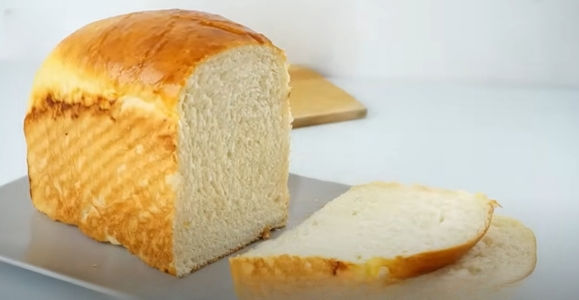
Why does milk make bread softer? The fat found in milk alters the crumb structure shortens the gluten strand, and binds the gluten bonds more securely resulting in a softer crumb.
A bread can be made with milk as well as water. But both have some different consequences. Water can make the bread more chewy but on the other hand, milk can make this bread soft.
Whether it’s the milk of a cow or buffalo or even the milk powder can make the bread even better compared to the water-bread. Today, in this article, we will learn everything about why milk makes bread softer and also some other related consequences.
Natural sugars like lactose do not break down during the fermentation process but they also help caramelize the bread when baking, resulting in a tastier and visually beautiful bread.
What Does It Do To The Bread?
Before knowing about the job of milk in bread dough, it’s important to know what are the ingredients of milk itself. Milk is about 0.1% to 4% of fat depending if it is full fat or skimmed, and contains 3 to 5 % of sugar. And also it is 87% to 90% of water in it.
The sugars like lactose that are only found in milk do not taste sweet but they do caramelize the bread while baking.
For those who don’t know what caramelization is, it is a culinary process that involves heating the sugar often with other ingredients until and melts and down and turns into dark brown liquid, producing a rich and sweet flavor and characteristic to color to various types of bread. Not only on bread but on various types of food also.
Also, milk has a higher pH. But yeast fermentation requires an acidic atmosphere. For that reason, this also slows down the rate of fermentation resulting in a strong yet fully risen crumb. Also, using milk in bread gives a thinner crust and gives the bread a longer shelf life.
Benefits
Here are the benefits of using milk in bread:
1. It helps to raise the bread fully.
2. Gives the bread a longer shelf life.
3. Give the bread a better flavor and crust.
4. Make the bread lighter.
5. Makes a thinner crust.
6. Gives a greater taste.
7. Makes the bread softer. However, your bread can harden for more other reasons. For that reason, I have written a complete article on that topic here.
Milk v/s Milk Powder
Now, a question might come what to use, milk or milk powder? To answer that question we have to think about the ingredients of the milk and milk powder.
As I have mentioned before milk contains about 0.1% to about 4% fat, 3-5% sugar, and 90% water while powdered milk contains about 27% fat and 38% sugar, but the amount of fat and sugar in powdered milk soon drops when we dilute it in the water.
As a thumb rule, we should dilute powder to water in a ratio of 1:10. As milk powder has 4% of water which is not significant enough we don’t have to maintain the amount of water used in the dough.
Conclusion
In conclusion, if you want a softer and tastier bread, whiter as well, go for milk, any type of milk from cow’s milk to milk powder, and if you want a crispier and chewier bread then go for water.
But, using milk can benefit you more than using water because of the reasons I have talked about above. Go and check them out.

